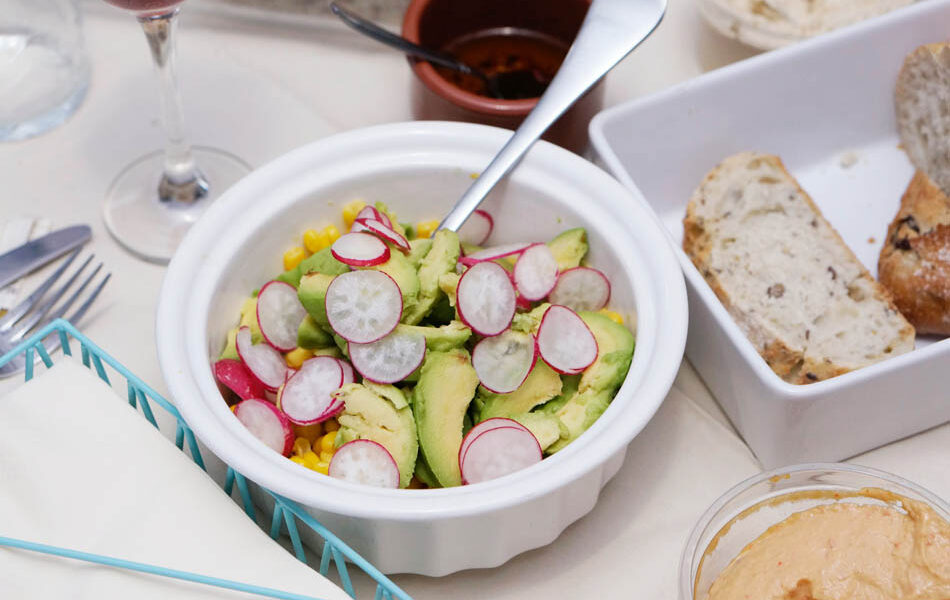How to Lose Weight in 2 Weeks: Strategies to Tone Up in 2 Weeks
What are the strategies to lose as much weight as possible in just two weeks?

Losing weight fast can be challenging for several reasons, as the body is not designed to lose it quickly.
However, if you want to get rid of it quickly, you need to monitor your overall health, and with time and determination, you will reach your weight loss goals.
How to Lose Weight in 2 Weeks?
Losing a lot of weight in just two weeks is not a healthy goal.
Being overly preoccupied with your weight and focusing on short-term fat loss or using weight loss supplements for fast results can take a toll on your mental and physical health.
The focus on fast weight loss is at an all-time high. People are bombarded by social media ads on rapid weight loss. Losing weight leads to good health, but it is best to do it using safe and sustainable methods.
This article will discuss why you should aim for long-term weight loss centered on lifestyle and dietary changes.
How Much Weight Can You Lose in 2 Weeks?
If you are planning to shed weight, you might be wondering how much you can lose in 2 weeks. According to the CDC, the safe weight loss rate is 1 to 2 pounds a week. You can thus lose 4 pounds in 2 weeks at a safe pace.
However, losing anything more than the recommended rate will require intense physical activity and a good understanding of how calorie deficit works.
Generally, people lose a lot of weight at the beginning of a weight loss regime. Most of this is majorly due to loss of water weight. However, the body quickly adjusts, making it harder to lose weight after the initial phase.
Therefore, you need a plan to conquer the weight loss plateau as you might end up regaining the lost weight.
Sustainable weight loss requires a long-term commitment. Ensure you are ready and motivated to make lasting changes in your eating and activity habits.
What to Eat to Lose Weight in 2 Weeks?
If you are looking to lose weight or continue with your weight loss progress, you need to be wary of what you eat to keep you healthy and supply your body with the necessary energy requirements.
A weight-loss diet encourages calorie restriction and jumpstarts your metabolism. Certain foods help you reach your target weight faster as they help the body burn fat more quickly when incorporated into a controlled eating plan.
Some of the good foods for weight loss are whole eggs, steamed vegetables, meats rich in lean protein, soups, legumes, fruits, nuts, and whole grains.
Together with regular exercise, your diet affects your weight loss outcome. Alongside training and eating in moderation, whole foods are nutritious, delicious and help you quickly attain a healthier weight.
As you try to lose weight, avoid crash diets, as their overly restrictive nature can affect your relationship with food. They might lead to rapid and short-term weight loss but are unsustainable long-term. Below is all you need to know about losing weight in 2 weeks.
Lose Weight in 2 Weeks: 8 Simple Tips
There are various strategies for losing weight, but in the end, it boils down to burning up more calories than you consume. All these strategies come in handy to maximize your weight loss efforts.
Below are the simple tips you can use to lose excess body weight in two weeks.
#1 Consume fewer calories
Weight is a balancing act. Consuming extra calories leads to weight gain, and eating fewer calories will promote weight loss. Lowering your calorie intake will help you tip the weight scale. Calorie restriction enables you to lower your caloric intake and develop mindful eating habits.
A pound of fat is 3,500 calories. Therefore, cutting your daily calorie intake by 500 puts you on track to lose one pound a week, and eating 1000 fewer calories a day helps you lose 2 pounds a week.
Your age, weight, height, level of physical activity, gender, and overall health affect how many calories you need in a day. However, any diet that involves cutting back more than 1000 calories a day is considered a crash diet and might cause detrimental health effects.
#2 Try a keto diet
A keto diet is a low-carb, high-fat diet that pushes the body into ketosis – a physiological response when fat is burnt for energy instead of carbs. It is a tested method to chip off excess weight.
Ketosis occurs when there isn’t enough glucose for the body to burn. To reach ketosis, you need to eat foods low in carbs and rich in healthy fats.
Ketogenic diets also fuel significant reductions in blood sugar levels and insulin levels which causes additional health benefits. Other diet studies also show that the keto diet can help lower appetite and food intake.
#3 Start working out
Exercising is one of the best ways to increase your energy expenditure. Find a physical activity that you like that pushes you to the limits as it will help you burn calories and increase your metabolism.
You can consider high-intensity interval training workouts (HIIT), cardio workouts like walking, swimming, running, or strength training activities like weight lifting and pushups.
If you are not used to workouts, start slowly and work towards high-intensity exercises.
When you start exercising, you will first lose water weight. However, you will lose more weight with time as your body rapidly burns calories as you exercise more. Your muscle mass also increases, leading to higher metabolism.
Other than exercise, you should also get enough sleep to stay healthy. Sleep deprivation is linked to obesity and weight gain as it causes hormonal imbalance.
#4 Choose snacks wisely
To adopt a healthy lifestyle, you need to avoid unhealthy foods and wisely choose your snacks. Poor food choices like carb-laden, processed foods spike your blood sugar and inhibit you from reaching your weight goals.
Instead, you can use healthier alternatives like green vegetables, spinach, and cherry tomatoes. You can also snack on fruits such as apples and berries. Fruits and vegetables are a good snack option as they are nutrient-dense and have fiber that aids in your digestive system.
Fiber keeps you more satiated, thus preventing weight gain.
#5 Avoid sugary drinks
We consume a lot of hidden calories in drinks. A 12-ounce latte has 150 calories, and alcoholic beverages like red wine have 125 calories in a 5-ounce glass. Instead, you can lower your carbohydrate intake by replacing these sugary drinks with drinking water, unsweetened tea, or coffee.
During these two weeks that you are trying to reduce your weight, minimize your consumption of alcoholic drinks, as they only have empty calories and add no nutritional value. It is essential to track your macros to ensure you do not exceed your daily calorie requirements.
#6 Try intermittent fasting
Intermittent fasting is an excellent way for you to lower your food consumption. It involves regular, short-term fasts that help reduce your cholesterol and blood sugar levels, thus inhibiting weight gain.
Another helpful habit is also eating slowly. You can take in more calories than necessary when you eat quickly since the brain can take up to 20 minutes to signal that your stomach is full. However, eating slowly leaves you more satiated with fewer snack cravings after meals.
The DoFasting app is a great personalized intermittent fasting assistant that helps you quickly attain healthy weight goals. It is designed to meet every client’s needs, with diet plans made by a nutritionist to help you safely lose weight.
The app is also a great accountability partner, and it educates and motivates you through the weight loss process. It has a progress tracker, calendar, and has effective workout routines that help you build better habits.
The app comes in 3 plans: the 3-month, 6-month, and 12-month plans. The 3-month plan costs $78, the 6-month plan costs $104, and the 12-month plan costs $268.
#7 Eat more fiber
Fiber is excellent for weight loss as it takes longer to pass through the digestive tract and leaves you feeling full for an extended period.
Whole foods are the best source of soluble fiber. Scientific evidence suggests that fiber promotes overall fat loss and reduces your appetite. To get the best results from fiber, you need to couple it with healthy food choices and exercise.
#8 Say no to foods with gluten
Foods containing gluten are also generally high in carbs, and they kick you out of ketosis. For instance, wheat is rich in gluten, and the body converts wheat to sugar faster than other grains.
Foods high in gluten contribute to weight gain and fat storage, making it difficult to lose weight. For the two weeks that you are trying to lose weight, it is best to reduce the consumption of gluten products.
A Word From RD
There are numerous ways of tipping the number on the weight scale, but trying to lose weight in two weeks is an unrealistic target.
The most effective weight-loss method is taking a long-term approach and making changes such as getting a good night’s sleep, effectively managing stress levels, and exercising regularly.
It is essential to read the labels of the foods you eat to understand the nutritional facts and choose low-calorie food options. Be mindful of your portion sizes and avoid overeating.
Before embarking on your weight loss journey, it is best to seek medical advice from a licensed medical practitioner.
Conclusion
A two-week weight loss journey is neither easy nor for the faint-hearted. You need to make a serious commitment and keep going, however difficult it may seem. Your weight loss rate depends on your body, underlying health conditions, healthy eating habits, and health goals.
A personalized weight loss strategy will make it easy to lose and keep off the extra pounds. Be sure to consult your nutritionist, doctor, or personal trainer for the best results on your weight loss journey.

















































 Select your language:
Select your language: 








